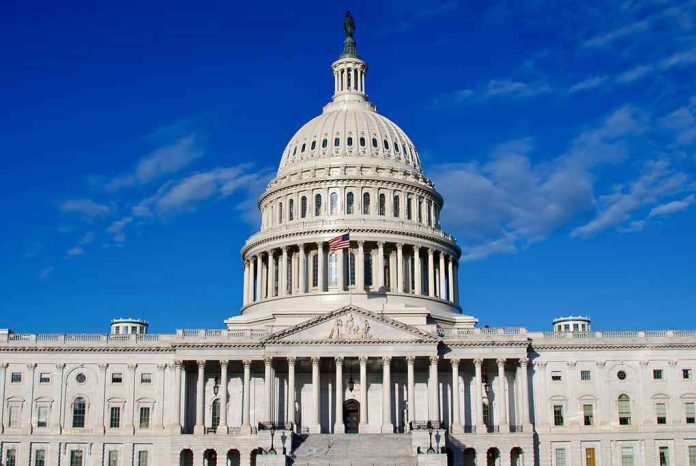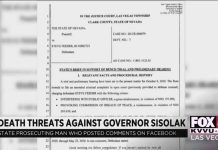
As President Trump navigates his second term, over 150 of his nominees remain in limbo, trapped in a Senate confirmation gridlock that threatens to paralyze key government functions.
At a Glance
- More than 150 Trump nominees are stuck in the Senate without confirmation.
- Senate Democrats use procedural tactics to delay or block confirmations.
- The gridlock affects critical national security and diplomatic positions.
- Trump may resort to controversial recess appointments to bypass the Senate.
The Senate Standoff: A Battle of Ideals
President Trump’s second term has been met with fierce resistance from Senate Democrats who are determined to slow down his administration by stalling more than 150 key nominations. This isn’t just a political scuffle; it’s an outright assault on the effective functioning of our government. The nominees, many of whom have already passed committee vetting, are now stuck in procedural purgatory, awaiting the green light from a Senate more interested in partisan bickering than public service.
The Democrats, clinging to any shred of influence they can muster, have resorted to the arcane tactics of filibusters and procedural delays, effectively grinding the Senate to a halt. Their excuses? Alleged concerns over nominee qualifications and policy direction. But in reality, it’s a strategy to obstruct the very machinery of governance that keeps America safe and operational.
National Security in Jeopardy
The implications of this gridlock are alarming. Among the unconfirmed are critical national security posts: the Undersecretary of Treasury for Terrorism and Financial Crimes, the Director of the National Counterterrorism Center, and several senior defense positions. These are not jobs that can simply sit vacant without consequence. The lack of confirmed leadership in these roles poses a direct threat to our national security and global standing. It’s a dangerous game of political chess, where the pawns are the American people and their safety.
Senate Majority Leader John Thune is caught between a rock and a hard place, balancing the need for party unity with the demands of a President growing increasingly impatient. Thune has options, albeit limited ones. He could pressure Democrats into unanimous consent to fast-track these confirmations or opt for the nuclear option: declaring a formal recess to allow Trump to make recess appointments, bypassing the Senate entirely. Each option has its own set of repercussions, both politically and constitutionally.
The Political and Economic Fallout
The economic impacts of this standoff are not to be underestimated. Key regulatory posts remain unfilled, creating a cloud of uncertainty over industries ranging from finance to labor. Business confidence takes a hit when there’s no clear leadership within the agencies that regulate and oversee their operations. The public, too, is feeling the sting as government effectiveness dwindles, trust erodes, and the perception of a dysfunctional Senate takes root.
But the political repercussions are perhaps the most profound. This gridlock sets a dangerous precedent for future administrations. It normalizes obstructionism and further erodes the norms and traditions that have, until now, ensured a functioning government. Both parties are playing with fire, risking backlash from voters who are fed up with the endless gridlock and partisan gamesmanship.
The Road Ahead: Recess Appointments and Executive Authority
As the Senate approaches its recess, the pressure mounts for a resolution. Trump’s potential use of recess appointments looms as a controversial yet constitutionally viable option. Historically, recess appointments have been used sparingly, and their expanded use could provoke constitutional challenges and deepen partisan divides. This possibility underscores the gravity of the current crisis—a crisis born not of necessity but of political obstinance.
While the Senate Democrats may argue their role as gatekeepers of qualification and policy, the reality is stark. Their obstruction not only undermines the will of the electorate but also jeopardizes the very security and functionality of the nation. The time has come for the Senate to put aside petty politics and fulfill its constitutional duty to the American people.
Sources:
Partnership for Public Service


